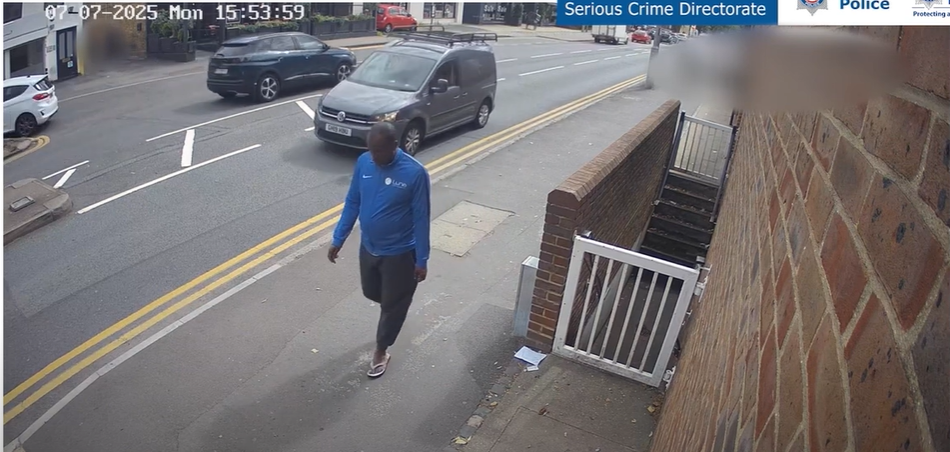The removal of Hadush Kebatu, an Ethiopian migrant who was convicted of sexual assault, brings an uneasy end to a saga that set off another wave of anti-migrant unrest across the country and exposed embarrassing security lapses. However, his deportation continues to cause debate.
A man convicted of sexual assault but mistakenly released from prison instead of being deported to his home country was given a payment of 500 British pounds (around 567 euros) after he allegedly threatened to disrupt his removal from the United Kingdom.
Hadash Kebatu, reported to be an Ethiopian national, was found guilty of sexual assault against a woman and a 14-year-old girl while staying at an asylum hotel in Epping in the summer. He had arrived just a few days prior to carrying out the assaults on a small boat from across the Channel. In September, he was sentenced to imprisonment of one year.
Following his sentence, the Home Office announced that he would be deported as soon as he had served a minimal part of this sentence. This is known as the 'early removals' scheme, allowing for the deportation of foreign criminals before they have completed their sentence. The Home Office currently also has a law going through parliament, which if passed, would allow for the immediate deportation of some migrants convicted of crimes.
However, instead of carrying out the scheduled deportation, Kebatu was mistakenly released from prison custody a week ago, instead of being transferred to an immigration detention center.
Over the next two days, a manhunt ensued after he was seen boarding a train to London and approaching members of the public for assistance. He was finally arrested in north London, in Finsbury Park, after a tip-off from the public.

Metropolitan Police Commander James Conway confirmed Kebatu's arrest in a statement: "Information from the public led officers to Finsbury Park, and following a search, they located Mr Kebatu. He was detained by police, but will be returned to the custody of the Prison Service."
British public broadcaster BBC reported on Friday (October 31) that the Home Office confirmed Kebatu's flight, which departed on Tuesday and landed in Ethiopia on Wednesday morning. Authorities reportedly paid Kebatu 500 British pounds (around 567 euros) as a "discretionary" incentive to cooperate with the deportation after he threatened to disrupt the process.
Read AlsoUK police arrest wrongly released migrant sex offender
Controversy over payments
The case has drawn fierce political backlash and public alarm about systemic failures in prison and immigration operations.
Deputy Prime Minister David Lammy ordered an independent investigation to "establish the full facts of the incident, which shocked the public."
I am livid on behalf of the victims and the public that this mistake was allowed to happen," Lammy said in a statement.
Lammy also confirmed immediate measures to strengthen release checks across all prisons, described as "the strongest release checks to ever be in place".
Critics from opposition parties accused the government of incompetence and mismanagement of taxpayer funds, especially given the payment of 500 British pounds, which was framed by some as a misuse of public money.
While the UK’s Facilitated Returns Scheme (FRS) can offer foreign national offenders up to 1,500 British pounds as a "resettlement grant" to return voluntarily, it is unusual to pay someone during a forcible removal or a deportation. By definition, a forcible removal is not a voluntary return.
According to information on the UK Home Office website, the FRS was established in 2006 to make the early removal of foreign national offenders to their country of origin easier.
Read AlsoFact-checking Reform UK's migration policy claims
Arrest sparked wave of protests
Kebatu's arrest and conviction prompted large demonstrations outside hotels being used to accommodate asylum seekers, underscoring growing public anger and political tension around immigration and community safety.
The protests began in Epping, where thousands gathered outside the Bell Hotel calling for tougher controls and chanting slogans such as "protect our girls." The unrest quickly spread to other towns and cities across the country, with further rallies held near hotels where migrants were being housed.

Some protests drew participation from far-right groups, leading to clashes and police intervention, while counter-demonstrations were organized by Stand Up to Racism and other anti-racist campaigners to oppose what they described as the scapegoating of migrants.
The scenes reflect a deepening national divide over immigration policy and asylum accommodation, issues that have intensified amid record migration numbers and a strained public housing system.
Moral panic over male migrants and crime risks
A growing moral panic linking migrants to crime is fueling xenophobia and empowering far-right movements across Europe, experts told InfoMigrants. Anti-migrant groups have exploited fears about public safety by portraying the "young male migrant of color" as a symbol of danger, particularly sexual violence.

Experts stress that gender-based violence cuts across all racial and social groups. Studies show migrants are not overrepresented among perpetrators, underscoring that safety concerns must never justify racism or exclusion.
Read AlsoUK: Is there an increasing number of sexual assaults committed by male migrants?
